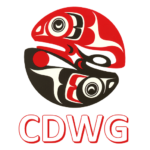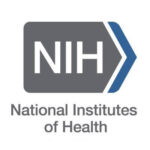Fyall Co-Authors Publication on WASH Among RV Residents
|
As vehicular homelessness has become more prevalent in recent years, meeting the water, sanitation, and hygiene (WASH) needs of vehicular residents has emerged as a growing public health concern. CSDE Affiliate Rachel Fyall (Evans School) recently co-authored an article in the International Journal on Homelessness which documents the experiences and WASH needs of RV residents in Seattle. The article, entitled “Keeping Clean: A Qualitative Analysis of Water, Sanitation, and Hygiene Among Residents of Recreational Vehicles in Seattle, WA US” finds that water and hygiene experiences of RV residents were comparable to those of other unhoused populations, but that sanitation needs were distinct. The authors also propose several service delivery models for cities which can address the needs of RV residents. Read the full article here.
(read more) |
 |
Gregory to Deliver Katz Distinguished Lecture on December 3rd
|
How did the West Coast become the “Left Coast” and what does that mean for American politics? In the 1930s, California, Oregon, and Washington began to develop a relationship based on the role of radical social movements that has added to their regional affinities ever since. Appearing first in the 1980s, the term “Left Coast” has further underlined the significance of progressive and radical movements in the political systems and reputations of these states. In the Katz Distinguished Lecture on December 3rd, CSDE Affiliate James Gregory (History) will explore the history of West Coast radicalism and factors that have made it influential beyond what is common in other regions, including those with blue state traditions. The event (6:30pm in Kane Hall, Room 210) is free and open to the public. Seats open until filled.
(read more) |
 |
Yang and Almquist Examine Relationships Between Conservatism, Evangelicalism, and Mask Mandate Attitudes in a New Co-Authored Article
|
Research on political polarization has shown that it is a powerful force which can significantly impact Americans’ attitudes, beliefs and actions. In a recent article, CSDE Research Scientist June Yang and Research Affiliate Zack Almquist (Sociology) show that political conservatism partially explains the Evangelicals' stance against mask mandates during the pandemic. The article, entitled "Political and educational dynamics behind the Evangelicals’ stance against mask mandates during COVID-19 in the U.S" and published Social Science Research, also shows that a higher level of education is positively associated with greater political polarization of public opinions on the mask mandate during the pandemic. Read the full article here.
(read more) |
 |
Hall Releases Book on Applying Anti-Racist Principles in Behavioral Science
|
CSDE Affiliate Crystal Hall (Evans School) and co-author Mindy Hernandez released a book today (November 19th) entitled “Antiracist by Design: Reimagining Applied Behavioral Science.” Building on the authors’ decades of collective experience in applied behavioral science, the book shows how colorblind applications of behavioral insights have perpetuated inequities and identifies opportunities to advance racial justice. Read more about the book here, and register for a book launch event at the Evans School on December 11th here.
(read more) |
 |
|
|
Fall 2024 CSDE Computational Demography Working Group Talks (10/9/24-12/4/24)
|
CDWG co-hosts weekly seminars with the Max Planck Institute for Demographic Research (MPIDR). Researchers from both institutions will meet in hybrid to discuss novel data, methods, and applications of demographic and social science research. Tomorrow (Nov 20), Thelonius Goerz (Cornell University) will be presenting and discussing his research entitled “The Effects of Black-White Racial Segregation on Longevity in Mid-to-Late Life.” Please refer to the Quarter Schedule for the full list of speakers.
(read more) |
 |
Sign up to join the Early Career listserv!
|
We invite early career faculty affiliates to join our new mailing list, csde_earlycareer. Among other things, this is the way to find out info about our quarterly Early Career Affiliate happy hours, and you won't want to miss those! These will be a great way to meet up with other junior scholars in a fun and casual atmosphere over snacks and drinks. Who counts as early career, you ask? Typically we mean folks who are pre-promotion (i.e. assistant professor or equivalent), but we're not strict! Please note - this is for faculty only - we are strict about that. Sorry, all others!
(read more) |
 |
NIH Now Accepting Extramural Loan Repayment Program Applications (Due 11/21/24)
|
The NIH is now accepting applications for the Extramural Loan Repayment Program (LRP)! Awardees can receive up to $100,000 in qualified educational debt repayment with a two-year award.
To learn more about eligibility requirements, application dates, and the benefits of receiving an LRP award, be sure to visit the LRP website and check out our overview video. Please note that the deadline to submit your Extramural LRP application is November 21, 2024.
(read more) |
 |
*New* IES / NCER Research Training Grant Competition (LOI due 12/12/24)
Updating the Definition of Sexual and Gender Minority Populations in NIH-Supported Research
|
Statistics indicate that as of 2024, nearly eight percent of the U.S. population identifies as LGBT, with much of this growth attributed to increases in LGBT identification among younger generations. In recent years, policies and laws have been enacted in support of LGBTQI+ communities and their well-being. For example, the 21st Century Cures Act included provisions for the NIH Director to encourage efforts to improve research related to the health of sexual and gender minority (SGM) populations, including to increase participation of SGM populations in NIH-supported clinical research and to facilitate the development of methods for conducting SGM research. SGM people were designated as a population with health disparities for NIH research in 2016 by the Director of the National Institute on Minority Health and Health Disparities in consultation with the Director of the Agency for Healthcare Research and Quality. The NIH SGM health research portfolio has steadily grown and diversified since 2015.
(read more)
|
 |
CSDE Population Research Planning Grants (PRPGs) (Rolling deadline)
|
Population Research Planning Grants (PRPGs) are designed to provide in-kind support and/or funds of up to $25k* to support a wide array of activity types throughout the development of a research project. As part of our mission to complement rather than duplicate other campus opportunities such as the Population Health Initiative seed grants, we will consider funding things activities such as the of CSDE services beyond the standard allotments for affiliates.
(read more) |
 |
CSDE Matching Support to Supplement On-campus Funding (Rolling deadline)
|
CSDE Matching Support includes in-kind or monetary support to accompany a submission to other on-campus funding mechanism, such as PHI, EarthLab, or Urban@UW. All projects must have a CSDE affiliate who is UW faculty and is listed as a PI or co-PI, with any number of other collaborators. Note that we require (PRPGs) or strongly suggest (matching funds) contacting either Development Core Director (Steven Goodreau) or CSDE Director (Sara Curran) to discuss possibilities for your specific proposal before submission.
(read more) |
 |
*New* IPUMS Health Survey Data Update
|
The IPUMS Medical Expenditure Panel Survey (MEPS) recently announced a new data release. IPUMS now includes 2022 data released by the Agency for Healthcare Research and Quality (AHRQ) earlier this year. This initial release updates over 1,100 variables from the Full Year Consolidated, Condition, Event, Prescribed Medicine, Appendix to the Event, and Pooled Variance files and adds variables about Long COVID. Learn more here.
(read more) |
 |
NSF: Proposals Impacting Tribal Nation Resources & Interests
|
As of 5/20/2024, NSF proposals that may impact the resources or interests of a federally recognized Tribal Nation will not be awarded by NSF without prior written approval from the official(s) designated by the relevant Tribal Nation(s).
Proposers must:
- Seek guidance from the potentially impacted Tribal Nation on activities that require review and prior approval from that Tribal Nation’s authorized designee.
- Submit a written request to the relevant Tribal Nation (based on their guidance), for approval to carry out the proposed activity that requires their review and approval.
- Complete the checkbox for “Potential Impacts on Tribal Nations” on the Cover Sheet. Note, lead organizations are responsible for this on collaborative proposals & proposals with subawards considered a single unified project.
- Upload one of the following into "Other supplementary documents" of Research.gov:
- a copy of the written request to the relevant Tribal Nation to carry out any proposed activity/activities that may require prior approval from them
- written confirmation from the Tribal Nation(s) that review and approval is not required
- a copy of relevant Tribal Nation approval
(read more) |
 |
Overview of Grant Application and Review Changes for Due Dates on or after January 25, 2025
|
This notice provides the research and research training community an overview of application and peer review changes impacting grant applications submitted for due dates on or after January 25, 2025, including:
- Simplified Review Framework for Most Research Project Grant Applications
- Revisions to the NIH Fellowship Application and Review Process
- Updates to Reference Letter Guidance
- Updates to NRSA Training Grant Applications
- Updated Application Forms (FORMS-I)
- Common Forms for Biographical Sketch and Current and Pending (Other) Support
Although each of these initiatives has specific goals, they are all meant to simplify, clarify, and/or promote greater fairness towards a level playing field for applicants throughout the application and review processes.
(read more) |
 |
*New* Max Planck Institute for Demographic Research (MPIDR) Population and Social Data Science Summer Incubator Program (1/8/25)
|
The Max Planck Institute for Demographic Research (MPIDR) is inviting applications from qualified and highly-motivated students for a Summer Research Visit. The goal of the Population and Social Data Science Summer Incubator Program is to enable discovery by bringing together data scientists and population scientists to work on focused, intensive and collaborative projects of broad societal relevance.
For a period of 3 months (June 2nd – August 22nd, 2025) participating students will work in small teams, with support from experienced mentors, towards a common research goal. For the summer of 2025, the focus of the program will be on three main research areas:
1) “Climate Change and Mobility” mentored by Risto Conte Keivabu, Ebru Sanlitürk, and Monica Alexander (University of Toronto);
2) “Machine Learning for Life Course Trajectories” mentored by Linda Vecgaile, Bruno Arpino (University of Padova) and Emilio Zagheni;
3) “Mortality in War Settings” mentored by Yvette Young, Diego Alburez-Gutierrez, Enrique Acosta (Centre d'Estudis Demogràfics -CED) and Irena Chen.
Learn more about this opportunity here. Applications are due by January 8th, 2025.
(read more) |
 |
|
|

